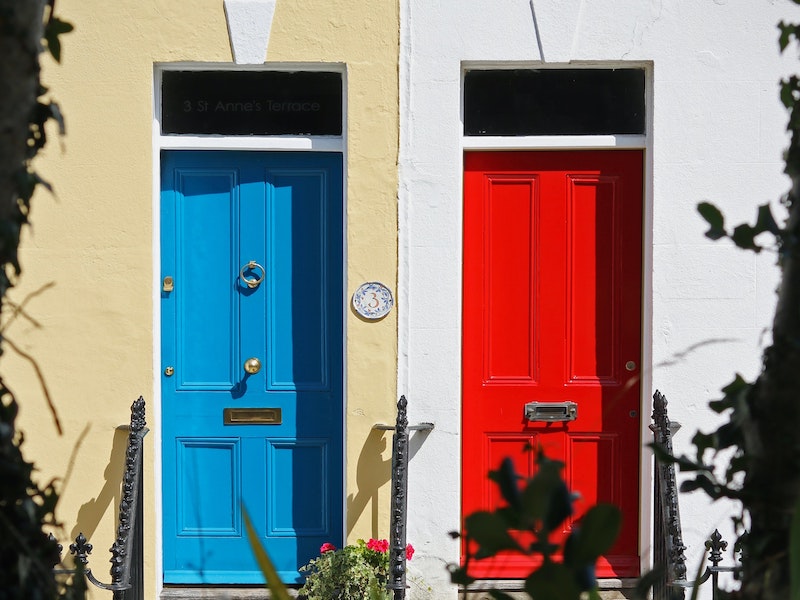It died a quiet death. The politics of our imagination, where politicians fought for ideas they believed in, where they would stand on the pulpit and fight for those they represented, is long gone. With the collapse of left-wing politics into a deep, dark abyss, the politics of ideology is over. Now the right dominates. How it happened is due to an unsuspecting culprit, the economy.
In modern society, the economy is, by far, the most influential sphere of influence in society. From buying food at the supermarket, to going to work, to paying for bills, our lives are heavily influenced by how the economy is organised. And the function of a government largely depends on the ideas governing the economy.
Today, free-market capitalism is the dominant world ideology that forms the foundations of a hyper globalised world economy. And with the domination of free-market capitalism has come the domination of right-wing politics.
In the twentieth century when there were parties on the left, representing socialist ideals, and parties on the right, representing the free market, things were very different.
Poles apart
Before the collapse of communism in the early 1990s, the left and right were clearly defined poles.
To appreciate how the role of government changes, depending on the economic ideas that dominate in society, let’s consider the differences between the two great economic ideologies that dominated the twentieth century; capitalism and communism.
If we think of communism and market fundamentalism as two extremes at opposite ends of a spectrum, there was a clear dividing line between parties on the left and the right.
In free-market capitalism, the market is the all-consuming organising force that manages the economy. The only mechanism managing the market prices, and the market is governed by the principle of supply and demand. No one ‘controls’ the market. And so, in a free-market economy, the government is small and plays a minimal role in organising the economy.
Taken to its extreme, market fundamentalists would argue the government is a meddling force that should play no role in the economy whatsoever. The only function governments should have is to defend the peace and protect private property, two aspects that are central to allowing the market to flourish. Beyond that, the idea is that markets will lead to efficient social outcomes if left alone.
In a communist society, the economy is managed by a central organising force, that being the government. This system is the exact opposite of a free market system. The economy is highly controlled, and everything is distributed and organised by the government to meet the needs of society.
Clearly, the role of and influence of government is very different in a communist country because they are the central organising force governing the economy. The government employs everyone in society. Everything feeds through it.
The Cold War symbolised the ideological battle between these two economic ideologies. But the ideological battle between these two economic systems ended long ago. With the collapse of the Soviet Union and the Eastern Bloc at the beginning of the 1990s, capitalism won the battle of ideology.
And with the demise of communism, the differences between political parties and the ideologies they represent has narrowed.
The left-wing
In most countries, the major political parties sat somewhere between the two extremes. The closer they got to the pole, the more extreme the political party tended to be.
Most countries have been represented by a socialist party that was synonymous with the left. In the UK, this used to be the Labour party before it was rebranded as ‘New Labour’. Essentially a party on the right that no longer represented its working-class roots.
Socialist parties have traditionally argued for stronger regulation of markets. Greater regulation (and control) of markets is considered to favour the social good. This is because regulation can ensure that markets deliver positive social outcomes while protecting the poorest from profit-seeking companies.
The idea is that a government is mandated to increase social value for society. On the other hand, private companies are driven by maximising profits. They do this by profiting from society, not necessarily by increasing social value. And so by having more influence, governments can protect society and make sure the market creates increased social value.
Socialist governments tend to nationalise key services, like the energy sector and the transportation network. As a result, the government plays a far more active role in the economy, and it tends to increase in size.
Left-wing parties tend to increase government spending to bolster the welfare state. They finance this increased spending by increasing taxes on the rich. The idea here is that by taxing the rich, the welfare state then works to distribute wealth throughout society, helping to reduce inequality between the richest and poorest.
The right-wing
The right-wing parties who lean towards market fundamentalism have traditionally favoured less regulation on markets and less interference within peoples lives. They argue that more privatisation is better for the economy because the private sector is more efficient at running the economy than the government.
They also tend to support lower taxes. The idea is that lower taxes help stimulate economic growth (this is known as trickle-down economics). More growth, translates into more wealth, the benefits of growth end up trickling through society. The focus is on supporting individuals to prosper; policy focuses on freeing individuals from the shackles placed on them by government. As a result, governments on the right tend to be smaller in their influence on the economy and peoples lives.
Right-wing parties tend to cut spending, which helps to offset any reduced revenue from decreasing the tax rate. The argument is that if the market is given room to prosper, then every individual should be able to prosper within it. In short, there is no need for government handouts or support. Each person should make the most of the opportunities presented gt them in the free market.
Global dominance
The problem today is that with the collapse of communism, there is now only one pole. Free market capitalism is the dominant world ideology. If a country wants to partake in the global economy, they have little option but to embrace the rules and ideas that govern free-market economies.
A consequence is that it has nullified politics because there is no real ideological difference between political parties anymore. They all believe in the same economic ideology.
The dividing lines are largely irrelevant because no political party questions free-market capitalism.
The role of government is to let the economy look after itself. And while the government tinkers with various social elements, they can’t make any substantial changes because the economy is the all-pervasive sphere of influence.
The death of politics
Free market capitalism has become such a dominant ideology that the role of government is to provide a facade that democracy is still alive and well. And it is the people who choose for this economic system to remain in place.
Different parties may have different ideas and policies to manage society, but these are largely inconsequential because every (major) party supports free-market capitalism unquestionably.
There are still political parties that represent different ideologies, like the Green Party in the UK, but they are on the fringes, not likely to get into power.
Today, if any party represents socialism, or any other ideology other than free-market capitalism, for that matter, they are attacked mercilessly by the ‘free’ press.
While it is labelled free, hinting that it is unbiased, the reality couldn’t be further from the truth. In America, fifteen billionaires own the countries new media agencies.
They are heavily biased towards free-market capitalism because it is this system that has made them so rich. And so it is in their interests to own teh media and make sure that everyone in society agrees that free-market capitalism is the best of all economic ideologies.
They celebrate free-market capitalism as the fountain of everything good about the world. Meanwhile ridiculing any other ideology to ensure minority parties are considered unelectable.
They do because these minority parties do represent a threat to the continuation of an ideology that has made them so wealthy.
For this reason, Jeremy Corbyn was attacked ferociously by the free, unbiased press in Britain. Meanwhile, Bernie Sanders was considered unelectable in America due to the influence of unbiased news agencies like Fox news.
These men were seen as dangerous because they do support a socialist government that would shift the economy to the left. If they had managed to get into power, they could have made radical changes to the economy. And it is for that reason they are such a threat to the global economic hegemony.
A bitter irony
During the cold war, there was fear that the red army would come and take away your civil liberties. Today, the irony is that in democracies, everyone believes they have a choice, and at face value, it appears like you do. That you have a choice between two doors that lead to two different paths. But the reality is, while you are presented with different options, each leads to the same path on the other side.
And yet, people still believe that their votes matter, that they can make a difference. You can’t. Because no matter which political party you vote for, the economic system will remain the same. And with the same economic system, we will continue to see the same social outcomes.
The democratic system has become a sham. A control mechanism designed to make you believe that you are voting for a political party that stands for a particular ideology.
In reality, whoever you vote for, you continue to vote for an economic system to maintain itself. That’s the brilliance of providing people with the illusion of choice. You believe you are choosing between two different outcomes when in reality, the choice has already been made for you.



